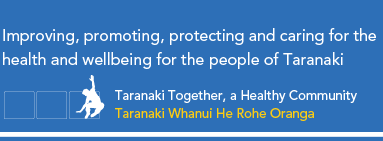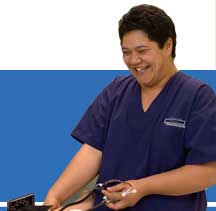Campaign urging earlier dementia diagnosis
27 August 2012
A campaign is being launched in early September encouraging people showing early signs of Alzheimer’s disease to talk to their doctor.
The campaign, “The sooner we know, the sooner we can help”, also provides GPs and practice nurses with information to support people with dementia via a dedicated website.
People typically live with the diagnosis of dementia for many years, and a significant portion of this time can be at home, says Psychiatrist of Old Age, Dr Matthew Croucher.
“A wide range of support is available to people with dementia, which can only be accessed following diagnosis,” Dr Croucher says.
A timely diagnosis makes a transition into life with dementia smoother, giving more control to the person with dementia and removing the uncertainty of the unknown. It allows issues to be managed before they become crises and decisions such as organising an enduring power of attorney to be arranged when the person with dementia has the capacity to do so.
An estimated 48,000 New Zealanders have dementia and this number is set to increase to 88,000 by 2030 and 147,000 by 2050. International studies indicate that more than half of dementia cases may be undiagnosed, which means that these people and their families may face the stress and confusion of dementia without support.
While dementia is usually chronic, incurable and degenerative, Dr Croucher says there are a number of ways in which GPs supported by practice nurses, can help a person presenting with dementia symptoms by:
- Education, so the person and their families know what they are dealing with.
- Practical and personal support for the person with dementia and their supporters.
- Treating and relieving symptoms such as anxiety, depression or hallucinations, and where appropriate, prescribing Donepezil or related cognitive enhancing medications.
- Monitoring the person for risks such as falls, poor nutrition, wandering and mismanagement of medication.
- Planning ahead so the person, their families and supporters can make timely decisions about managing the illness over a number of years.
- Referring patients to support services, such as Alzheimers New Zealand.
- An interactive directory of the dementia community, including local support services and specialist medical help.
- Direct links to credible information about dementia related issues, such as nutrition, incontinence and wandering.
- Information and resources for those with dementia and their families to which GPs can refer their patients.
Over time, the campaign is expected to increase the dementia cases presented to GPs, and therefore referrals to dementia specialists. Alzheimers New Zealand, which is leading the campaign, is talking with the sector to encourage it to be prepared for the campaign. GPs and practice nurses can prepare by:
- Visiting the Alzheimers New Zealand website www.alzheimers.org.nz to view the resources that are available, and ordering resources to support your patients post diagnosis
- Meeting local service providers and understanding their referral process
- Identifying the dementia champion of your DHB and learning about its dementia initiatives.
About Alzheimer’s disease and dementia
Dementia occurs as a result of physical changes in the brain, which can affect memory, thinking, behaviour and emotion. In New Zealand, more than 48,000 people have dementia. Alzheimer’s disease is the most common form of dementia accounting for between 50% and 70% of cases.
Alzheimers New Zealand urges the government to recognise dementia as the most serious health crisis to be faced this century. Dementia needs to be made a national health priority in New Zealand to adequately fund the sector and best prepare for the significant costs of dementia in the future. The number of people with dementia is growing dramatically due to an aging population combined with the fact people are living longer and it is estimated by:
- 2030: 88,309 people will have dementia.
- 2040: 120,423 people will have dementia.
- 2050: 147,359 people will have dementia.
For further information please contact:
Kimberley Ebbett
Communications Manager
Alzheimers New Zealand
DDI 04 387 8264
MOBILE: 027 619 1911
EMAIL: kimberley.ebbett@alzheimers.org.nz
About Alzheimers New Zealand
A not-for-profit organisation, Alzheimers New Zealand represents people with dementia, their carers and families and whanau, through advocacy, awareness raising, and providing information such as resources, a library and the quarterly publication Alzheimers News. It also supports the work of Alzheimers New Zealand’s 22 member organisations, which provide assistance for people with dementia and their family, whanau and carers in communities throughout New Zealand.
Last updated: Friday, November 7, 2014



